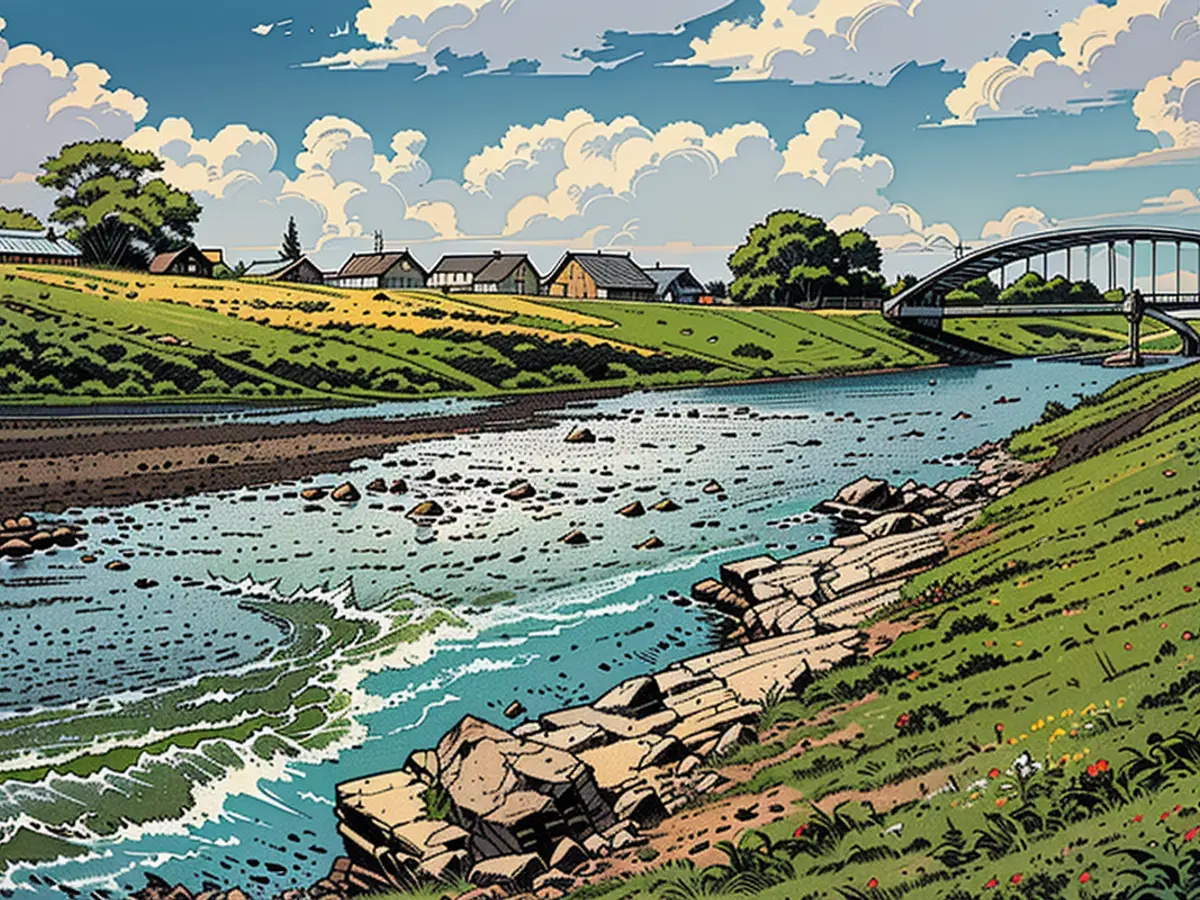European nations approve contentious wildlife protection legislation
The Contentious Re-Naturation Act has sparked debates across the EU for several months, encountering criticism from Conservatives and farmers. Remarkably, it has still garnered a slim majority among the participating countries. Austria's Environment Minister is among those opposing Chancellor Nehammer's intentions.
According to the Belgian Presidency, the Environmental Ministers and Ministers of the European Union have allegedly approved the contentious Re-Naturation Act in Luxembourg. The decision was allegedly swayed by Austria's Climate Protection Minister, Leonore Gewessler, voting in favor of the law despite Chancellor Nehammer's disapproval.
The EU's objective with this law is to rectify environmental harm in member states. The law obliges EU countries to restore at least 20% of damaged areas and marine territories by 2030, and all threatened ecosystems by 2050.
Critics voice concerns over farmers
The European Commission proposed the so-called Re-Naturation Act nearly two years ago. According to official data, approximately 80% of habitats in the European Union are reportedly in a dire condition. Also, 10% of bee and butterfly species and 70% of soils are said to be in a poor state.
While environmental activists, many scientists, and businesses welcomed the act, it faced significant opposition, primarily from Christian Democrats and farmers' associations. Critics expressed concerns about the potential adverse effects on farmers and potential impacts on food production in the EU. To alleviate these concerns, the act underwent extensive dilution during the negotiation process.
Initially, the EU countries and the European Parliament had agreed on a compromise in November. Farmers would no longer be required to reserve a specific portion of their country's land for eco-friendly measures, a requirement that farmers had strongly objected to.
Tense relations in the Council
The formal approval of this agreement by the 27 EU countries was expected to be a mere formality. However, diplomatic sources reported that Italy, Finland, the Netherlands, Poland, Sweden, and Hungary opposed the act. Belgium abstained. The necessary qualified majority of at least 15 member states and at least 65% of the EU population was only achieved with Austria's approval.
The conservative OVP-led Federal Chancellery in Vienna had threatened to file a nullity action at the European Court of Justice on Sunday, which could potentially overturn the act. "I know I will face opposition in Austria," said Climate Protection Minister Gewessler in Brussels. She reportedly indicated that she would let the lawsuit proceed. "I am convinced that it is now time to pass this act."
Eleven EU-Countries, including Germany, had demanded a decision on the Re-Naturation Act in a letter to the Belgian presidency of the EU Council in May. The signatories, including Ireland, warned that the compromise delay "threatens our democratic institutions" in the letter. In July, Hungary, with its right-wing nationalist government, will take over the EU Council presidency on a rotating basis.
Read also:
- Despite facing opposition from conservative politicians and farmers' associations in various EU countries, including Austria, the EU Council of Ministers approved the contentious Re-Naturation Act for environmental protection.
- Austrian Environment Minister Karl Nehammer disagreed with the intentions of Chancellor Nehammer regarding the approval of the Re-Naturation Act, but Austria's Climate Protection Minister, Leonore Gewessler, voted in favor of the law.
- As part of the EU's objective, the Re-Naturation Act requires EU countries to restore at least 20% of damaged areas and marine territories by 2030 and all threatened ecosystems by 2050, with the Ministry of the Environment responsible for nature conservation.
- Despite significant opposition from farmers, the EU politicians approved the Re-Naturation Act, which aims to rectify environmental harm and improve nature conservation in EU member states, including Austria.








